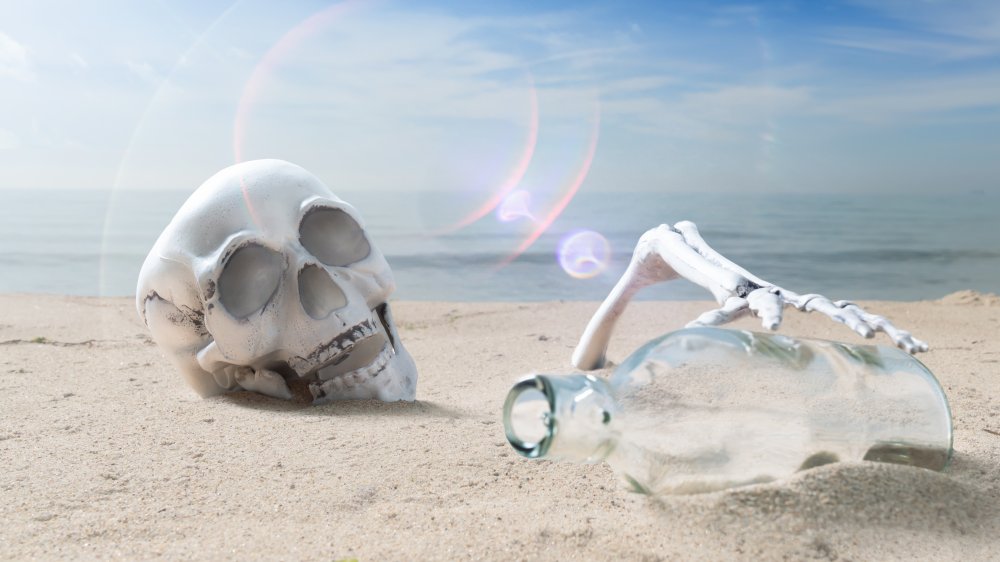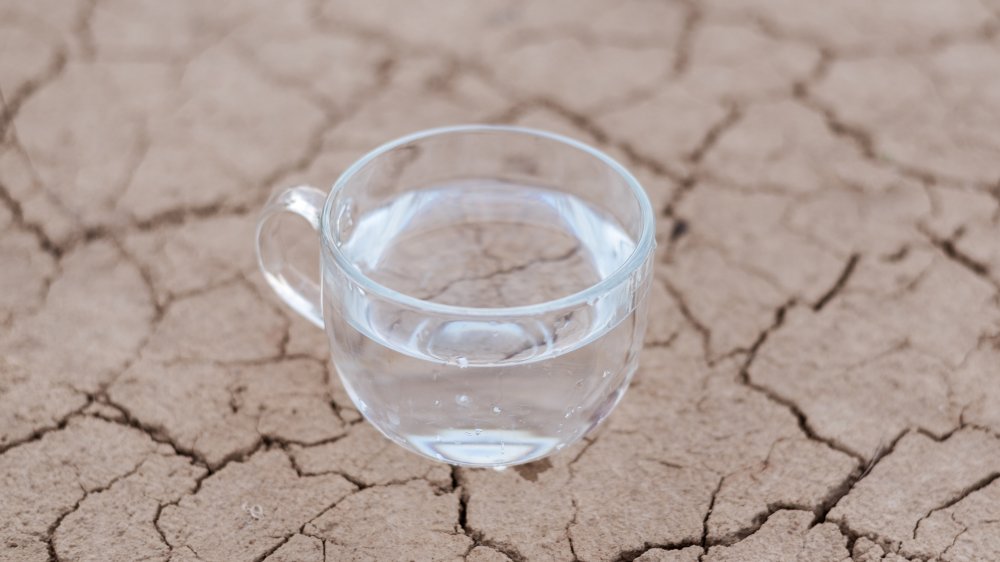How Long Can You Live Without Water?
Water is literally the elixir of life. Earth's first life forms may have originated in alkaline lakes full of phosphorus, and as the American Museum of Natural History explains, every living thing known to man needs water to continue living. But the amount each creature needs on a regular basis can vary dramatically. For instance, fish that live in oceans must drink tons of seawater to prevent dehydration due to the high salt concentration. Meanwhile, Mother Nature's super pooper, the humble wombat, obtains most of the moisture it needs from food and can survive without drinking water for entire years at a time, per LiveScience. But what about the not-so-humble human?
Don't have any water? H2-Oh no
With more than two-thirds of their innards made of H2O, people are mostly bodies of water. So you might assume that you have plenty of fluid to sustain you in the event of a hellacious dry spell. But your body is a complicated beast with many sensitive tentacles to consider. As Seattle Pi points out, water plays a vital role in homeostasis by regulating blood pressure and body temperature, flushing out toxins, and preventing excessive carbon dioxide build-up, which can do damage. So having too much or too little water can throw all those processes dangerously out of whack.
According to LiveScience, the UK National Health Service defines severe dehydration as the point at which a person loses about 10 percent of their body weight in water. But the time it takes for you to reach your breaking point will depend on how breakable your body already is and how inhospitable your surroundings are. If you're running around outside under pounding sun, or, much worse, trapped in a car on a hot day, you would dehydrate within hours. The ill and the elderly have an elevated risk of dehydration. But there's not set amount of time it takes for your body to run out of water. As with all things, it depends on the context.

